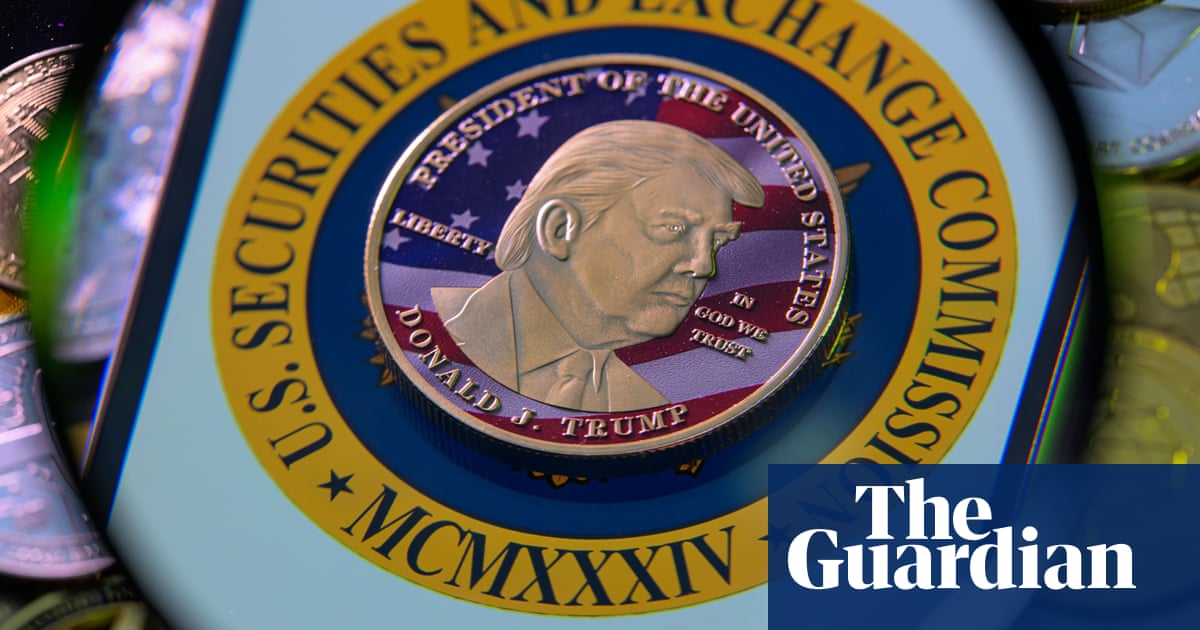The Intersection of Politics and Cryptocurrency: Trump’s Controversial Ventures
Donald Trump’s recent endeavors in the cryptocurrency landscape have ignited a firestorm of debate, bridging the often murky waters of politics, ethics, and financial gain. His initiative to relax oversight of the cryptocurrency industry has sparked concerns among watchdog groups, congressional Democrats, and even some Republicans. The implications of his actions are profound, raising alarms about the ethics and legality of a former president profiting from digital assets.
The $Trump Token: A Memecoin Controversy
Central to this discussion is Trump’s promotion of the $Trump token, a memecoin devoid of intrinsic value that has nonetheless attracted significant financial backing. On May 22, he hosted a lavish dinner at his golf club in Virginia for the top 220 purchasers of this token. This event reportedly garnered around $148 million, with funds destined to benefit Trump and his partners. Critics have lambasted this gathering, calling it a blatant exploitation of Trump’s political stature for personal financial gain.
Watchdog organizations have described Trump’s activities as unprecedented, with Richard Painter, a former White House ethics advisor, stating that the optics of such an event provide an appearance of corruption. Many are troubled by the sheer scale of financial investment in the $Trump token, especially considering the risks that memecoins often entail for investors.
Expanding Crypto Ventures: World Liberty Financial
The Trump family has not only capitalized on the $Trump token but has also expanded into broader cryptocurrency ventures through World Liberty Financial (WLF). Launched in the fall prior, WLF has quickly positioned itself at the forefront of significant financial deals, including a $2 billion investment arrangement with an Abu Dhabi fund tied to Binance, a cryptocurrency exchange recently embroiled in legal troubles. This connection intensifies concerns of improper foreign influence and ethics violations.
In mid-May, Trump’s son Eric appeared at a crypto conference in Abu Dhabi just two weeks before a critical business meeting, enhancing suspicions regarding the nature of these dealings and the potential implications for U.S. national security. Critics underscore how these ventures could facilitate foreign governments and corporations funnelling money into Trump’s personal finances, thereby creating a daunting avenue for corruption.
Senate Response and Legislative Measures
In response to Trump’s growing influence in the cryptocurrency arena, Senate Democrats, led by figures like Jeff Merkley and Chuck Schumer, have introduced the End Crypto Corruption Act. This bill aims to prevent former officeholders from exploiting their political connections for personal gain in the crypto market. By garnering bipartisan support, the act seeks to address what many see as a rapidly escalating conflict of interest.
Further complicating matters, Trump has appointed allies from the crypto industry to key governmental positions, including the Securities and Exchange Commission (SEC). This has led to a noticeable easing of regulatory pressures on crypto firms, raising alarms about the integrity of the regulatory body meant to oversee such transactions.
Allegations of Foreign Influence and Financial Ties
The concern over potential foreign influence is echoed in comments regarding Justin Sun, a prominent figure in Trump’s ventures and an investor in the $Trump token. Sun’s purchase of nearly $20 million in the token and his previous investments in WLF have drawn scrutiny, especially as he has faced allegations from the SEC for market manipulation. Critics question whether his financial ties to Trump might be influencing the regulator’s actions, particularly as the SEC has shown signs of leniency towards Sun’s pending legal issues.
The Ethical Dilemma of Cryptocurrency and Public Office
Experts from various fields have articulated that Trump’s posture regarding cryptocurrency presents multiple ethical dilemmas. Columbia Law Professor Richard Briffault described the situation as "doubly corrupt," where Trump’s marketing of regulations alongside his cryptocurrency ventures poses severe conflicts of interest. His engagement in the crypto space contradicts the ethical boundaries expected from a public official, creating a precedent that may have long-lasting implications for American governance.
Ongoing Criticism and Calls for Accountability
The critique surrounding Trump’s crypto dealings continues to intensify, especially among watchdog groups and congressional Democrats. Larry Noble, a former Federal Election Commission general counsel, emphasized the unprecedented nature of Trump’s ties to the crypto market and the ensuing risks to national security. As Trump and his family gather increasing wealth through these ventures, questions arise about the potential long-term impacts on U.S. governance and financial integrity.
The Role of Regulation in Preventing Corruption
As concerns mount regarding the ethics and legitimacy of Trump’s cryptocurrency investments, discussions around regulatory frameworks have resurfaced. The recently proposed Genius Act, which aims to ease various regulatory measures, has drawn ire from critics who argue that lax regulations could facilitate fraudulent activities within the crypto space.
With the Justice Department’s recent decisions to dismantle key oversight bodies, the potential for illegal activities, such as money laundering linked to drug trafficking, becomes a pressing concern. The scrutiny surrounding Trump’s crypto-related activities exemplifies the intersection of political agendas, financial ambitions, and the overarching need for robust regulatory oversight.
Public and Political Sentiments
Despite the bipartisan criticisms and escalating concerns, many Republican legislators have remained largely muted on the matter. However, some former party members have expressed dissatisfaction with Trump’s actions, arguing that he is leveraging his political standing for personal benefit at an unprecedented scale. This internal conflict within the party highlights the broader implications of Trump’s cryptocurrency ventures for both political accountability and public trust.
As Trump continues to navigate his presidency amid a thriving crypto landscape, the intersection of finance, politics, and ethics remains a contentious topic. The ongoing debates surrounding regulatory measures, public accountability, and the implications of foreign investments suggest a complex future for American politics in a rapidly evolving digital economy.



